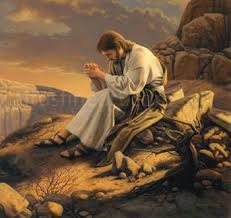 |
THE VISITATION OF THE BLESSED VIRGIN MARY.
Image from catholicfire.blogspot.com via google.com |
"From this day
all generations will call me blessed."
On the Solemnity of the Annunciation we reflected on the FIAT of the Blessed Virgin Mary: her yes to the will of the Father, her obedience to the eternal design of God.
Today we shall reflect on her MAGNIFICAT: her song of praise for the Father who did wonderful things not only for her but also for her people, Israel. We shall focus our reflection on the words prophesying her being called blessed by all generations.
When Mary visited her cousin Elizabeth, Elizabeth declared,
"Blessed are you among women and blessed is the fruit of your womb" [Luke 1:42].
Elizabeth considered it as a great honor to be visited by Mary, the mother of her Lord [v43] and told her cousin that the baby in her womb leaped upon her hearing of Mary's voice [v44] and once again she told Mary how blessed is she for having received the fulfillment of God's promise [v45]. And what follows was Mary's song of praise, also called the Canticle of Mary, the MAGNIFICAT, the first word of the Latin translation of the first line of the song, and which means GREATNESS.
And who would not be moved to be truly and sincerely grateful for the greatness of God? Of being singularly chosen to become the earthly mother of the only-begotten Son of the Father? Who is co-eternal with God and from beginning was with God and though whom God has created everything? Surely, for having been accorded with such singular honor for her simplicity, humility and obedience, she truly deserves to be called BLESSED by all the generations!
So when we call Mary BLESSED, we are not only acknowledging her important role as Mother of the Savior, who is also God and so making her the Mother of God too. We are also praising God and ultimately recognizing Him for the wonders that He did through someone like this humble young girl. And whenever we call Mary BLESSED, she doesn't keep to herself the honor but returns the praise to God and says, MY SOUL MAGNIFIES THE LORD!
Like Mary, we are all blessed, because we received God's grace upon baptism. We are further blessed when we receive the other Sacraments along our pilgrimage particularly the Sacraments of the Holy Eucharist and Reconciliation. We are blessed because the Holy Spirit has made our bodies His dwelling place, His temple. We are blessed when we obey the will of God in our lives. And so like Mary we should also proclaim the greatness of the Lord, we ought to give Him glory, magnify Him in our lives: in everything we do, say and think.
By the way, many people, especially anti-Catholics, abhor our way of giving honor and praise to the Blessed Virgin Mary. But if they only listen to their own words when they proclaim the so-called Sola Scriptura and repeatedly say, IT'S IN THE BIBLE, IT'S IN THE BIBLE, then they will surely see and read it in the Bible: Elizabeth, filled with the Holy Spirit, calls Mary blessed [vv 43, 45] and the Blessed Virgin Mary, rejoicing in God her savior, gives praise to the Father and prophesies that all generations will call her Blessed [v48] and we must not forget, during the Annunciation, the Angel Gabriel calls her full of grace [28] and that she had earned God's favor [v30]. Here's an inspiring story about a Protestant boy who became a Catholic priest later in life because of the Hail Mary, a prayer he heard from his Catholic friends. Initially prohibited by her mother from saying the prayer telling him that it's a superstitious prayer of Catholics and given the Holy Bible to read instead, he found out that said prayer was indeed IN THE BIBLE.
We must also be true Catholics, Christians, in order to lead others to know more about the truths of our Faith, like the friends of this Protestant boy who recited the Hail Mary which moved the boy's soul to seek for the truth. For if we, Catholics, won't be faithful to the Blessed Virgin, how can we be exemplars to non-Catholics about giving her the proper honor in recognition of God's greatness?
These people who doesn't understand how to properly honor her are afraid that she might take our attention off the Lord Jesus Christ, the only mediator between God and man. In this case, rest assured that she doesn't take us away from the Lord; instead, she leads us to Him and tells us the right thing to do which is,
"Do whatever He tells you."
- John 2:5














